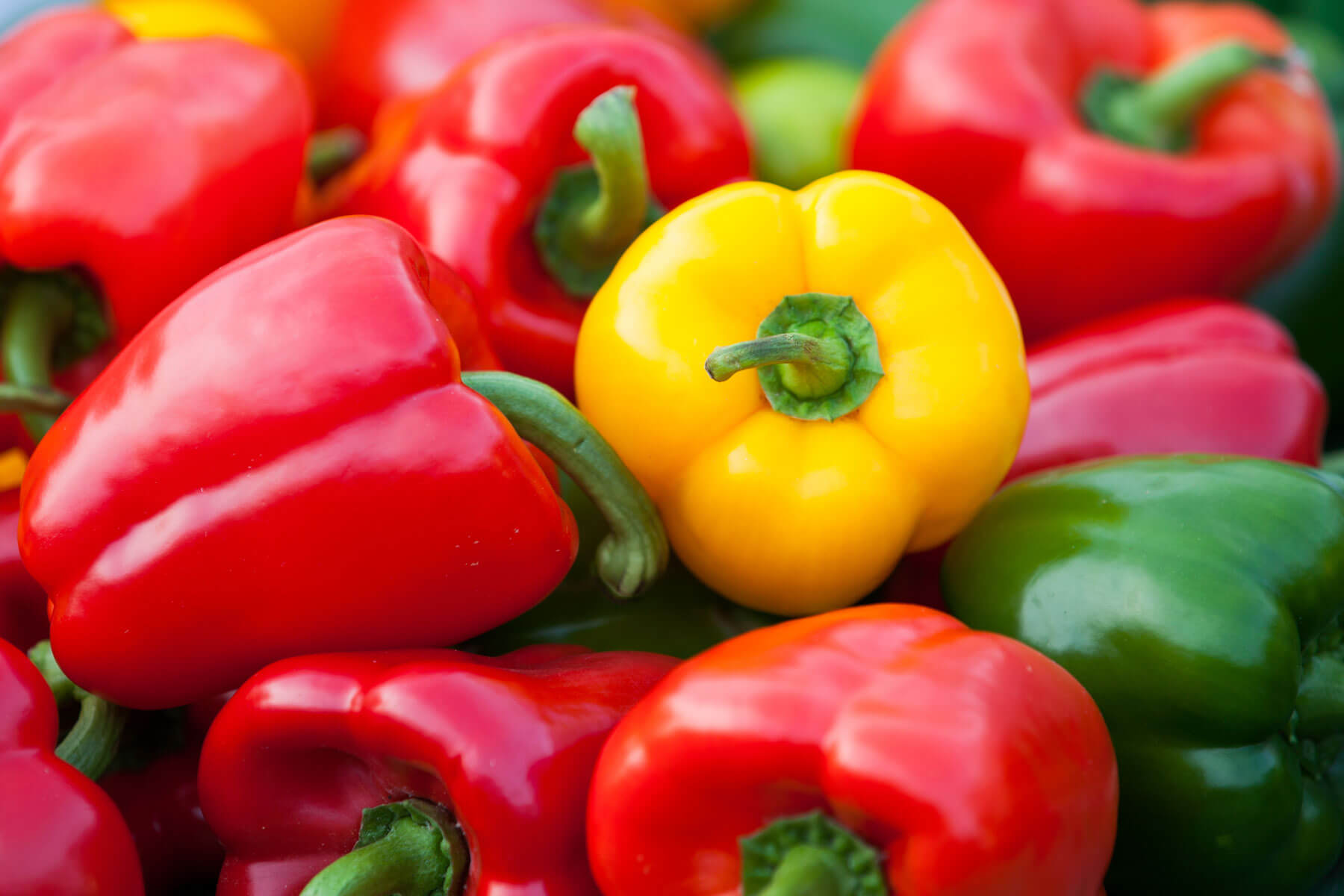Find Out the Best Fertilizers for Peppers: Top Picks for Optimum Development
Find Out the Best Fertilizers for Peppers: Top Picks for Optimum Development
Blog Article
Organic Vs. Synthetic Fertilizers: Which Is Best for Supporting Healthy And Balanced Pepper Plants?
In the world of nurturing healthy and balanced pepper plants, the choice between organic and synthetic plant foods stands as a crucial choice with significant ramifications. While both choices aim to offer important nutrients to sustain plant growth, the subtleties of their effect on the dirt, plant health and wellness, and the atmosphere stimulate a debate that echoes throughout the gardening neighborhood. Comprehending the distinctive advantages and possible challenges of each plant food kind is important for pepper growers looking for to optimize their returns while maintaining an eco-conscious and sustainable approach.
Advantages of Organic Plant Foods
Organic fertilizers provide an environmentally-friendly and sustainable strategy to beneficial pepper plants, offering important nutrients without making use of artificial chemicals. These all-natural plant foods are stemmed from organic sources such as garden compost, manure, bone dish, and algae, advertising dirt health and wellness and biodiversity. Unlike artificial plant foods, organic options launch nutrients slowly, making certain a balanced and steady supply for pepper plants to grow.
One substantial advantage of natural plant foods is their capability to enhance dirt framework and water retention. By boosting dirt wellness, organic plant foods advertise helpful microbial task, which assists in nutrient uptake by pepper plants. Furthermore, natural plant foods decrease the threat of chemical run-off, protecting water sources from contamination and securing the atmosphere.
In addition, natural fertilizers add to long-lasting dirt fertility by advertising the development of advantageous soil microorganisms. These microorganisms help damage down raw material, releasing nutrients in a kind that is conveniently obtainable to pepper plants. best fertilizers for peppers. By promoting a healthy dirt ecosystem, natural plant foods support sustainable pepper cultivation techniques that profit both plants and the atmosphere
Downsides of Synthetic Plant Foods
Synthetic fertilizers, in comparison to their organic equivalents, pose numerous drawbacks when utilized to nurture pepper plants, affecting both plant health and wellness and ecological sustainability. One major disadvantage of artificial fertilizers is their propensity to seep nutrients from the dirt swiftly. This fast leaching can result in vitamins and mineral inequalities in the soil, causing plants to deal with poisonings or deficiencies. Additionally, synthetic fertilizers can damage valuable dirt organisms, such as earthworms and helpful bacteria, disrupting the soil environment's balance.
Moreover, the overuse of synthetic plant foods can contribute to water pollution. Excess plant foods not taken in by plants can clean away into water bodies, bring about eutrophication, where algae blooms deplete oxygen degrees in the water, damaging water life. Synthetic plant foods are generally obtained from non-renewable resources, such as fossil fuels, adding to carbon discharges and environmental destruction throughout their production.
Nutrient Absorption Contrast
When comparing artificial and organic plant foods in terms of nutrient absorption, organic plant foods have the advantage of offering an extra balanced and slow-release resource of nutrients. Organic plant foods have a variety of macro and trace elements that are not only useful for the plants but additionally promote healthy and balanced soil microbial task, which aids view it in nutrient uptake.
In addition, natural plant foods boost dirt structure and water retention capacity, allowing pepper plants to access nutrients extra efficiently. This improved dirt high quality assists in root development, making it possible for better nutrient absorption. Synthetic fertilizers, although originally enhancing plant growth as a result of their high nutrient focus, might hinder lasting nutrient absorption by degrading dirt health and wellness over Get More Info time.
Environmental Effect Considerations

On the various other hand, synthetic fertilizers, although usually more instantly available and concentrated to plants, can have harmful impacts on the atmosphere otherwise applied effectively (best fertilizers for peppers). Their production calls for high energy inputs, causing greenhouse gas discharges and adding to environment modification. The drainage of excess synthetic plant foods can pollute water sources, leading to eutrophication and hurting water communities.
Best Plant Food Practices for Peppers
To attain this, it is crucial to comply with finest fertilizer techniques customized to the specific requirements of pepper plants. One critical technique is to do a dirt examination before using any kind of plant foods.
One more important practice is to fertilize pepper plants at the correct time. Usually, peppers gain from obtaining fertilizer at growing and after that once more when they begin to flower. Over-fertilizing can bring about nutrient imbalances and harm the plants, so it is important to follow recommended application click here to read rates.
Furthermore, choosing a well balanced fertilizer with an NPK ratio that suits pepper plants' needs is basic. Eventually, integrating natural and artificial plant foods carefully can aid support healthy pepper plants while reducing ecological impact.
Verdict

Organic plant foods provide an environmentally-friendly and lasting strategy to nourishing pepper plants, offering crucial nutrients without the usage of artificial chemicals. Unlike artificial plant foods, natural alternatives release nutrients gradually, making certain a balanced and steady supply for pepper plants to flourish.
Artificial plant foods, in comparison to their organic equivalents, position numerous disadvantages when used to nurture pepper plants, impacting both plant wellness and ecological sustainability. When comparing synthetic and natural fertilizers in terms of nutrient absorption, natural plant foods have the benefit of giving an extra well balanced and slow-release resource of nutrients.In addition, natural plant foods boost soil structure and water retention capability, allowing pepper plants to access nutrients much more successfully.
Report this page